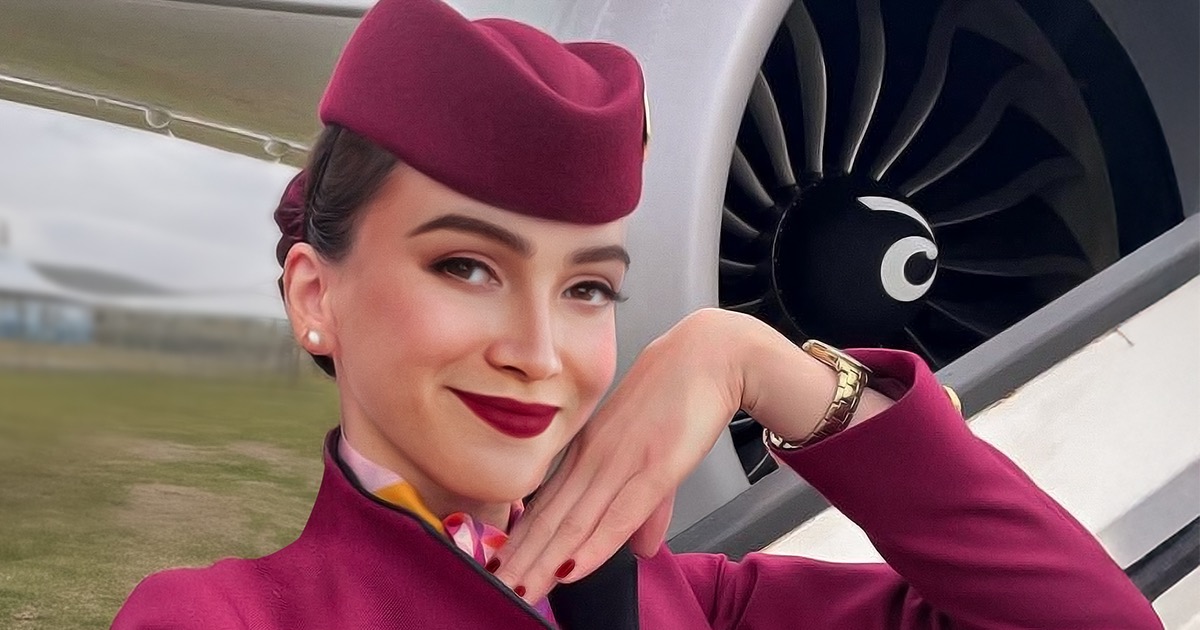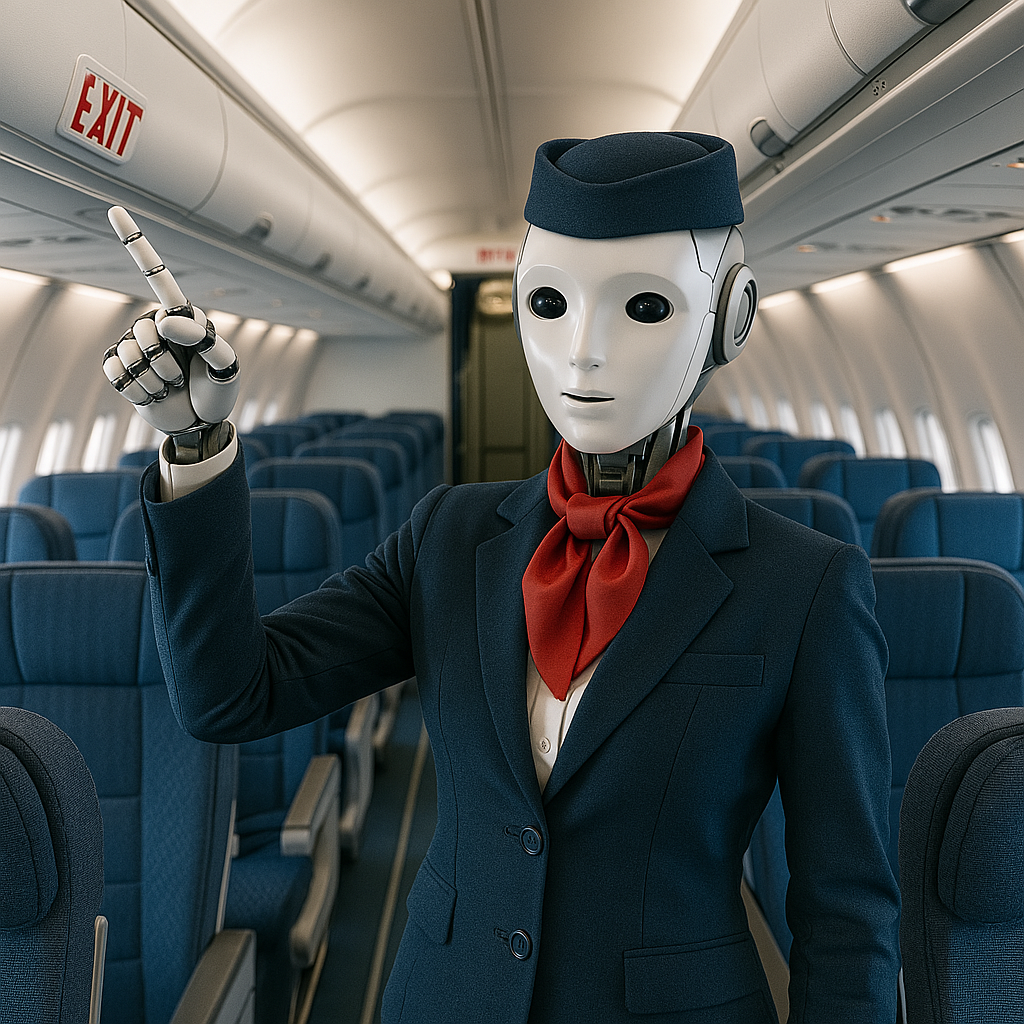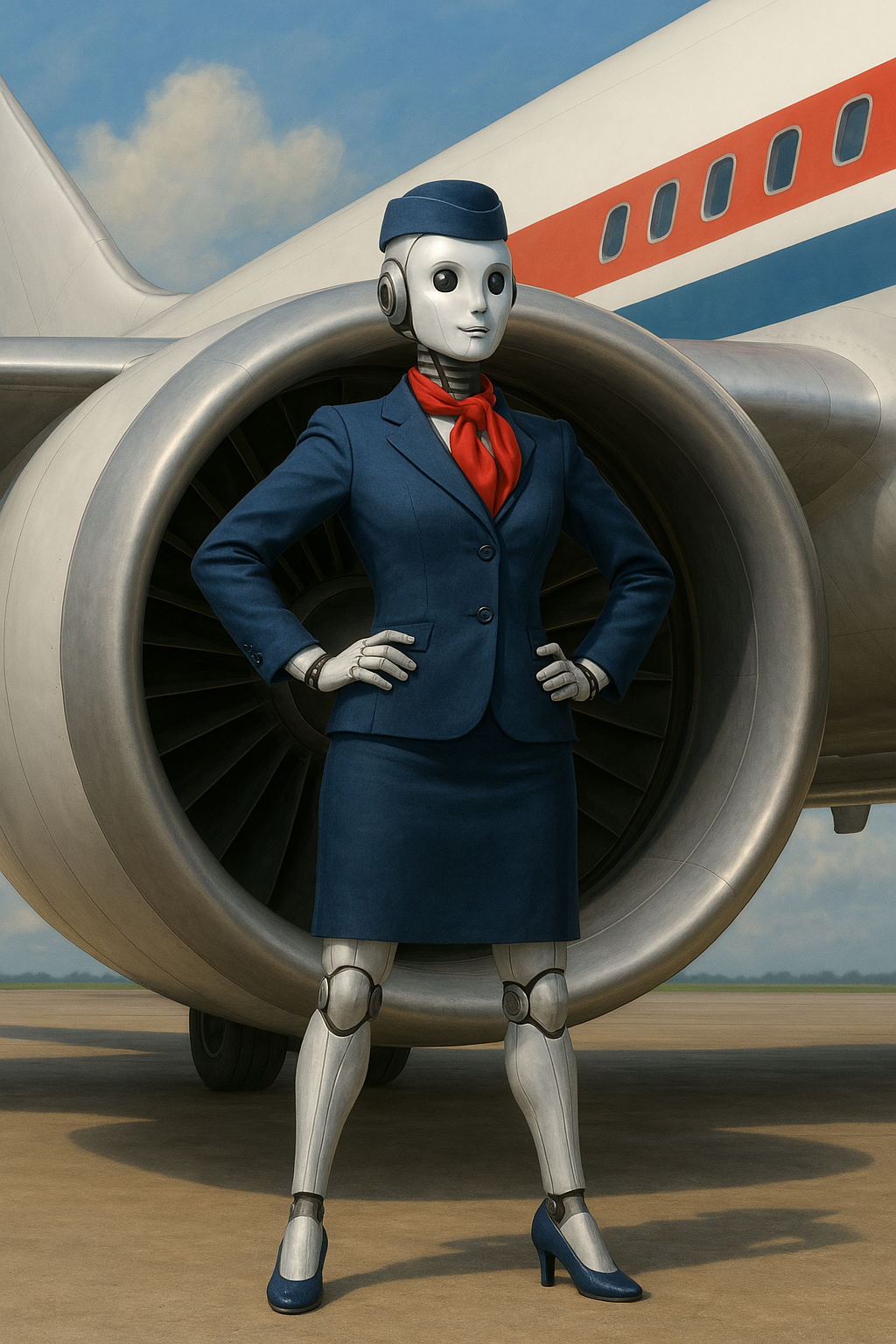Will Robots Replace Flight Attendants? Exploring the Future of Air Travel
Would you accept a bag of pretzels from M3GAN?
While the artificially intelligent killer doll from the popular movie franchise certainly wouldn’t make the cut in any job interview, the airline industry is soaring into the future with artificial intelligence (AI) and robotics. But as AI's presence grows, a pressing question emerges: Could flight attendants be replaced by machines?
At least one airline is already giving us a glimpse into the possible future of the in-flight experience.
In a previous post, I explored some absolutely bonkers 20th-century airline gimmicks that would never fly today (think: men-only flights, paper uniforms, smoking sections) and also dove into 13 signs that you're an annoying airline passenger. Now, it's time to take a look forward.

Sama: The “Digital Ambassador” of Qatar Airways
Earlier this year, Qatar Airways introduced an Instagram account for Sama, which is billed as the world's first AI-powered digital human cabin crew member. Developed in collaboration with UneeQ, Sama serves as a virtual assistant, engaging with passengers through the airline's app, website and even social media platforms like Instagram (@SamaOnTheMove). She provides travel tips, answers queries, and offers a glimpse into destinations across Qatar Airways' network.
Sama was unveiled at the ITB Berlin tourism conference in 2024, with advanced conversational AI capabilities. She interacts in real-time, guiding passengers through booking processes, offering destination insights and assisting with frequently asked questions. This innovation reflects Qatar Airways' goal of blending technology with personalized service — but it doesn’t actually replace human flight attendants.

If Robots are in Hotels, Why Aren’t They in Airplanes?
The airline industry isn’t the only one experimenting with automated hospitality — hotels have been beta-testing the “robotic concierge” concept for years. At YOTEL in New York City, for example, guests are greeted by “YOBOT,” a robotic arm that stores and retrieves luggage in a wall of lockers with the sort of mechanical grace you'd expect from a sci-fi valet.
Over in Japan, the Henn-na Hotel — which literally means “Strange Hotel” — made headlines by employing robot staff at the front desk, including an eerily polite humanoid and a disturbingly chipper velociraptor in a bow tie (yes, really).
Meanwhile, Hilton has tested "Connie," a robot concierge powered by IBM's Watson AI, which offers recommendations and answers guests’ questions in multiple languages.
While some companies have pulled back a bit on their high-tech endeavors due to maintenance challenges and guest preferences, these advances still underscore the hospitality sector’s continuing interest in AI and automation — and the probable direction for the future of hotel stays.
So isn’t it likely that the airline cabin could also witness a similar surge in the presence of robotic and AI creations?
The Big Reason Why Airlines Don't Use Robots in Planes (Yet)
Hotels may be ahead of the airline industry when it comes to developing robotic customer service, but the airlines probably have lagged behind for a very good reason: safety and security.
Simply put, flying in a plane is a more complex endeavor than checking into a hotel room, and there are lot more issues to address. No one wants to rush to hand over that kind of responsibility to an artificial human.
Indeed, despite technological advancements, the human element appears to be irreplaceable in certain aspects of air travel. Flight attendants, for example, play a crucial role in ensuring passenger safety, managing emergencies and providing personalized service. Their ability to assess situations, make quick decisions and humanize the air travel experience is something AI simply cannot replicate — at least for now.
While AI can assist with routine tasks and information dissemination, the nuanced interactions and emotional intelligence that human flight attendants bring are vital, especially during unforeseen circumstances.
Also, if it makes our flight attendant friends feel better, the fun-and-sometimes-scary website Will Robots Take My Job ranks the job of flight attendant as “low risk” of being replaced. (My job as a writer, in contrast, is in the “moderate risk” category. Yikes.)

What AI Can Do For the Airline Industry
Beyond virtual assistants, AI is permeating various aspects of aviation. Airlines are leveraging AI for predictive maintenance, optimizing flight routes and enhancing customer service. Airline techies are probably loving that AI systems can analyze vast amounts of data to predict equipment failures, ensuring timely maintenance and reducing delays.
Moreover, AI-driven chatbots handle booking inquiries, special requests and provide real-time updates to passengers. These tools enhance efficiency and allow human staff to focus on more complex tasks.
The Future of AI and Robots in the Airline Industry
Current trends and technological advances suggest a collaborative future for the airline industry, where AI and human flight attendants work together. In other words: you may end up relying more on technology, but you’ll still be able to complain to a cabin crew member.
AI can handle repetitive tasks, provide information and enhance operational efficiency, so that human crew members can focus on safety and personalized passenger experiences.
Qatar Airways' integration of Sama exemplifies this synergy, where technology augments human capabilities without replacing them. As AI continues to evolve, its role in aviation will likely expand, but the essence of human interaction will remain a cornerstone of the in-flight experience.
The skies are embracing technology, with AI offering promising enhancements to air travel. But the unique qualities that human flight attendants bring — empathy, adaptability and critical thinking — ensure their continued presence on board.
So, at least for now, you aren’t likely to be welcomed on board by a computer with legs (but good luck getting a human airline representative on the telephone in less than 20 minutes).
ABOUT MARK CHESNUT
Mark Chesnut is a New York City-based journalist, editor, travel industry consultant and public speaker with more than 30 years of experience. The winner of the 2019 NLGJA Excellence in Travel Writing Award, Mark is the author of the book Prepare for Departure. Follow him on Instagram!

Post a comment